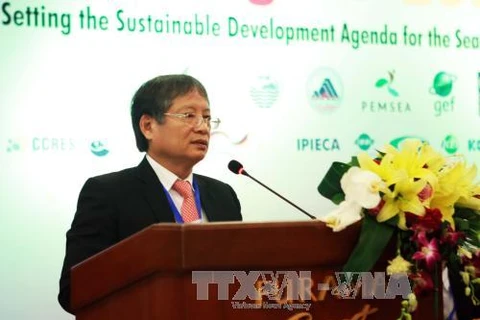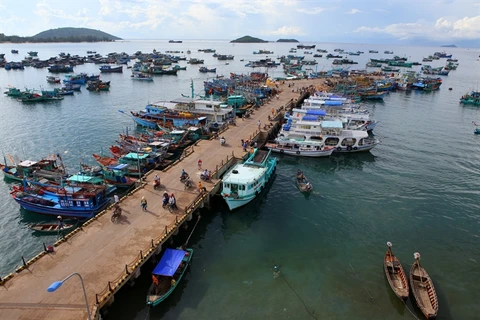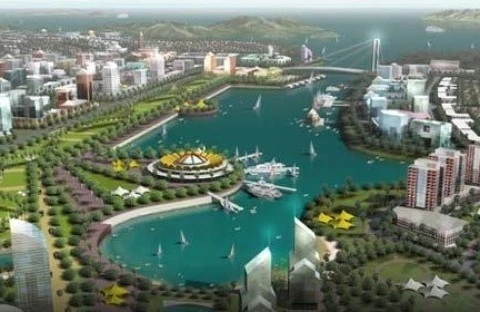Hanoi (VNA) - The development of maritime economy and the safeguarding of national defence, security and sovereignty at sea must be combined as one of major measures set forth to implement the strategy on exploitation and sustainable use of maritime resources and environment to 2020 with a vision towards 2030.
The strategy, which was approved by the Prime Minister on September 6, 2013, aims to raise the contribution of the maritime and coastal economy to the country’s GDP to 53-55 percent, said Nguyen Dinh Tuan Le from the Hanoi University of Natural Resources and Environment.
It targets tackling social issues and making considerable improvements in the living conditions for locals in coastal areas by doubling their average per capita income compared to the country’s average amount.
He held that the goals are reachable as Vietnam has a great advantage of 3,260km of coastline and a sea area of more than 1 million square kilometers, along with more than 3,000 islands and islets dotted in 28 cities and provinces nationwide.
The potential and advantage also affirm the significant and strategic role of sea and islands in the national construction and defence, said Le.
He noted that the scale of the maritime and coastal economy has been expanded rapidly, reflected by obvious changes in economic structure and the emerging of new economic sectors.
In 2000, the maritime and coastal economic sector contributed 47 percent of the country’s GDP. Many islands have high potential in economic growth, including Phu Quoc in southern coastal Kien Giang province and Cat Ba and Van Don in northern coastal Quang Ninh province.
In order to further increase the role of the maritime economy, it is necessary to strengthen offshore fishing and adjust coastal fishery, boosting the development of environmental friendly aquatic farming, said Le.
He also underscored the necessity of developing a fishery logistics service system, including seaports, shipbuilding, ship repair and fishing equipment facilities, storage, processing and consumption services, along with communications, search and rescue operations at sea.
The Government has also issued a policy to support fishermen, giving soft loans with an interest rate of 3 percent in 10 years for the building of steel-hull vessels for offshore fishing.
As part of efforts to assist fishermen in operating at sea and contributing to safeguarding the national sovereignty over sea and islands, the banking system has supported fishermen in upgrading their old vessels and building new ones.
The State Bank of Vietnam has launched a 10 trillion VND package for fishermen who will also receive subsidy for 50 percent of loan interest rates from the central and local budgets.
At the same time, the Party and State have recently adjusted the strategy for maritime economic development in line with strengthening defence and security to suit the new mindset on seas and oceans, while increasing communications on national defence and improve capacity for those who operate at sea and islands.
Research on sea strategies of other countries in the region and the world will be conducted to help design suitable maritime policies to effectively protect the national sovereignty over seas and islands.
International relations activities will be promoted to ensure the efficiency of the upcoming Code of Conduct of Parties in the East Sea, while the legal and policy system will also be completed.
Meanwhile, the organisation of authorised forces, including maritime liaison, fishery inspection and coast guard forces, has been strengthened.
Currently, authorised agencies are also zoning maritime areas basing on the ecosystem and planning, thus defining areas exclusively for defence activities.
The local governments in island localities have also been supported to improve their capacity to forge stronger socio-economic development in their localities and organize local forces efficiently serving the safeguard of national sovereignty over seas and islands.
The solidarity among fishermen and between them and authorised agencies, especially maritime border guards, is also crucial in building a people-based defence.-VNA
VNA























